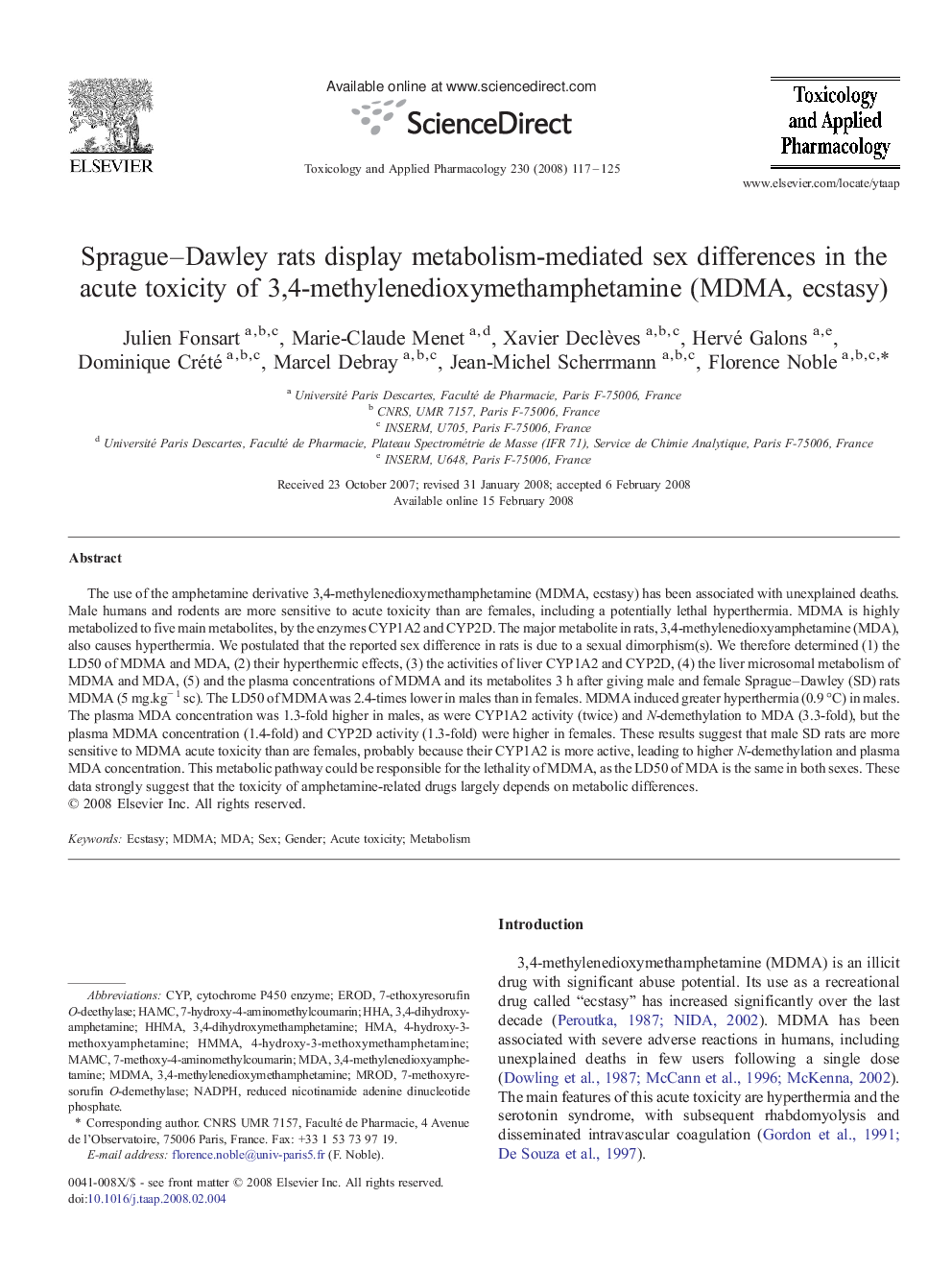| کد مقاله | کد نشریه | سال انتشار | مقاله انگلیسی | نسخه تمام متن |
|---|---|---|---|---|
| 2571112 | 1128617 | 2008 | 9 صفحه PDF | دانلود رایگان |
عنوان انگلیسی مقاله ISI
Sprague-Dawley rats display metabolism-mediated sex differences in the acute toxicity of 3,4-methylenedioxymethamphetamine (MDMA, ecstasy)
دانلود مقاله + سفارش ترجمه
دانلود مقاله ISI انگلیسی
رایگان برای ایرانیان
کلمات کلیدی
HMAMDAHMMAMRODMAMCMDMAERODNADPHCyP3,4-Methylenedioxyamphetamine - 3،4-Methylenedioxyamphetamine3,4-methylenedioxymethamphetamine - 3،4-methylenedioxymethamphetamine7-ethoxyresorufin O-deethylase - 7-ethoxyresorufin O- دی اتیلازcytochrome p450 enzyme - آنزیم p450 سیتوکرومEcstasy - اکستازی Gender - جنسیتSex - جنسیت، رابطه ی جنسیAcute toxicity - سمیت حادMetabolism - متابولیسم Hha - هاله هات
موضوعات مرتبط
علوم زیستی و بیوفناوری
علوم محیط زیست
بهداشت، سم شناسی و جهش زایی
پیش نمایش صفحه اول مقاله

چکیده انگلیسی
The use of the amphetamine derivative 3,4-methylenedioxymethamphetamine (MDMA, ecstasy) has been associated with unexplained deaths. Male humans and rodents are more sensitive to acute toxicity than are females, including a potentially lethal hyperthermia. MDMA is highly metabolized to five main metabolites, by the enzymes CYP1A2 and CYP2D. The major metabolite in rats, 3,4-methylenedioxyamphetamine (MDA), also causes hyperthermia. We postulated that the reported sex difference in rats is due to a sexual dimorphism(s). We therefore determined (1) the LD50 of MDMA and MDA, (2) their hyperthermic effects, (3) the activities of liver CYP1A2 and CYP2D, (4) the liver microsomal metabolism of MDMA and MDA, (5) and the plasma concentrations of MDMA and its metabolites 3 h after giving male and female Sprague-Dawley (SD) rats MDMA (5 mg.kgâ 1 sc). The LD50 of MDMA was 2.4-times lower in males than in females. MDMA induced greater hyperthermia (0.9 °C) in males. The plasma MDA concentration was 1.3-fold higher in males, as were CYP1A2 activity (twice) and N-demethylation to MDA (3.3-fold), but the plasma MDMA concentration (1.4-fold) and CYP2D activity (1.3-fold) were higher in females. These results suggest that male SD rats are more sensitive to MDMA acute toxicity than are females, probably because their CYP1A2 is more active, leading to higher N-demethylation and plasma MDA concentration. This metabolic pathway could be responsible for the lethality of MDMA, as the LD50 of MDA is the same in both sexes. These data strongly suggest that the toxicity of amphetamine-related drugs largely depends on metabolic differences.
ناشر
Database: Elsevier - ScienceDirect (ساینس دایرکت)
Journal: Toxicology and Applied Pharmacology - Volume 230, Issue 1, 1 July 2008, Pages 117-125
Journal: Toxicology and Applied Pharmacology - Volume 230, Issue 1, 1 July 2008, Pages 117-125
نویسندگان
Julien Fonsart, Marie-Claude Menet, Xavier Declèves, Hervé Galons, Dominique Crété, Marcel Debray, Jean-Michel Scherrmann, Florence Noble,